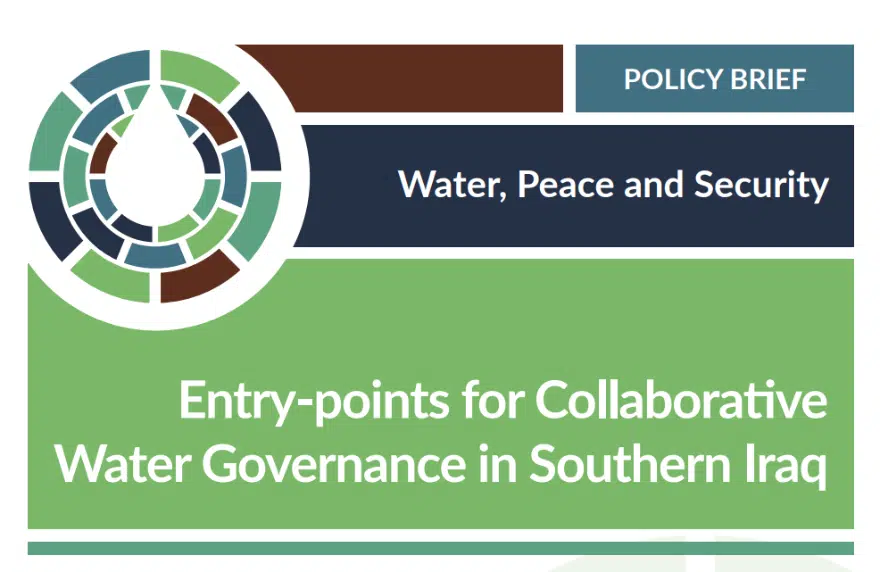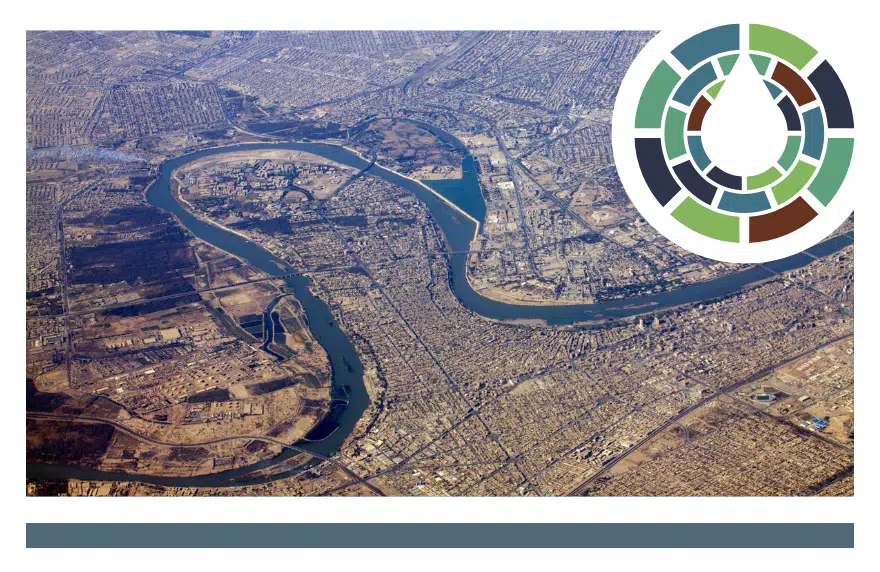Research
The water situation in Iraq is alarming. In 2021, the country experienced its second driest season in 40 years due to record low rainfall. Located downstream, much of the pressure on Iraq’s water resources comes from dam construction in neighbouring countries, the impact of violent conflicts, and the consequences of climate change. Despite the rapid decline of Iraq’s water resources over the last years, water is still inefficiently used or even wasted. In addition, the increasing competition over resources contributes to tensions and conflicts.
In 2021, the Iraqi parliamentary elections brought political shifts. This presents opportunities for addressing some of Iraq’s most pressing water issues under the new government. The outgoing government became engaged in addressing climate-related challenges over the last years; signing and ratifying the Paris agreement, re-establishing the Ministry of Environment, and drafting a green paper on addressing environmental and climate problems.
To supplement these efforts, this policy brief identifies three priorities to improve Iraq’s water situation and prevent or mitigate related crises, with the ultimate aim of supporting the new government in its planning. Specifically, this policy brief looks into transboundary water negotiations, water pollution, and inefficient water use – the three key priorities for Iraq’s water sector.
Authors: Irina Patrahau, Laura Birkman, Tobias von Lossow, Kendra Kock, Maha Yassin, Susanne Schmeier, Alyssa Offutt.
Partner institutions: The Water, Peace and Security partnership (WPS), and The Clingendael Institute





